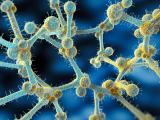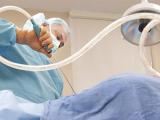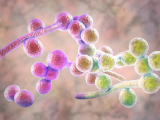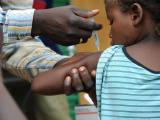Nov 1, 2012 (CIDRAP News) – Nine more patients have been sickened in a multistate fungal meningitis outbreak linked to a Massachusetts company's tainted steroid injections, boosting the total so far to 386, the US Centers for Disease Control and Prevention (CDC) said today.
Other outbreak markers held steady, with the CDC reporting no new deaths, affected states, or peripheral joint infections. The injectable steroids were also used to treat joint problems, and so far health officials have detected nine joint infections linked to the outbreak.
In other developments, the CDC yesterday released new details about the testing that it and the Food and Drug Administration (FDA) have conducted on clinical samples from patients and vials of methylprednisolone acetate recalled by New England Compounding Center (NECC).
In an earlier report from Oct 22 the CDC said testing has so confirmed fungal infections in 54 cases, with Exserohilum rostratum responsible for all but two of the cases. One unusual feature of the outbreak is that type of black mold has never been known to cause meningitis infections before.
The testing update revealed that, when health officials tested vials from the three recalled lots of the drug, they found two other types of fungus in separate lots: Rhodotorula laryngis and Rhizopus stolonifer. The fungi are not known to cause disease in humans, and they cannot grow at human body temperature, the CDC said.
An earlier CDC notice said E rostratum was found in vials from two of the three recalled lots.
Meanwhile, testing by the CDC's lab experts on Aspergillus fumigatus samples from the index patient from Tennessee and a heart transplant patient from Massachusetts who received a cardioplegic drug from NECC found that the strains don't match, which suggests that the organisms weren't from the same source, according to the report.
Those lab studies were prompted by a report on Oct 15 from the FDA that officials were looking into infections in three patients who received two other types of medications from NECC: one who received triamcinolone acetonide, another injectable steroid, and two who received a cardioplegic solution used to induce heart-muscle paralysis during open-heart surgery.
At the time the FDA said test hadn't confirmed that the infections were caused by NECC products, but it voiced concerns about the sterility of the company's products.
See also:
Nov 1 CDC outbreak update
Oct 31 CDC outbreak lab testing and results
Oct 15 CIDRAP News scan "Steroid-linked fungal outbreak expands; FDA eyes other drugs"



















